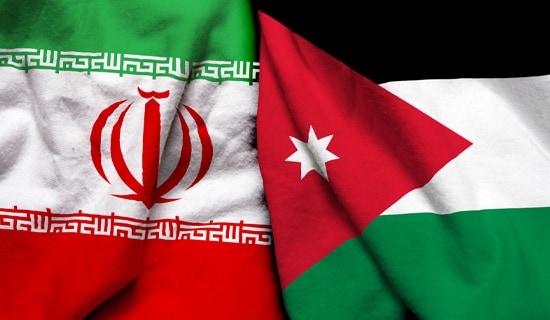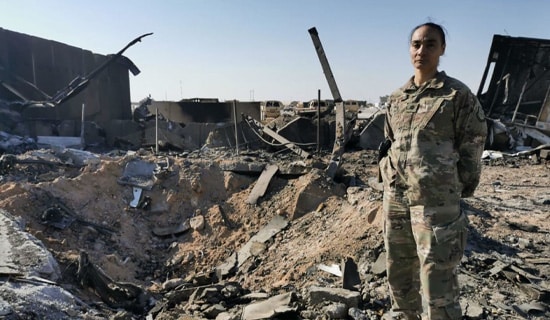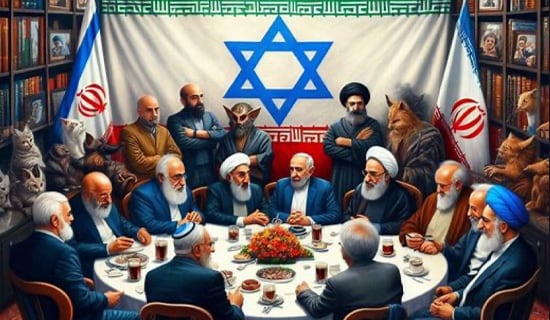Introduction
The nascent Iraqi democracy has been put to test three times in the course of one year-in two parliamentary elections and one referendum - and, confounding the skeptics (and, no doubt, sending shock waves through many countries in the region which live under the heavy hand of dictatorships), it has passed the test convincingly. In the words of the U.N. Mission observing the elections, voting three times in one year is an accomplishment even by the standards of an established democracy. [1] It is estimated that in the last elections, on December 15, over 10 million, or about 70 percent of the eligible voters, went to the polls. The number of voters was so large in some areas that the polling stations were kept open for an extra hour to accommodate them-a truly overwhelming response in a country which has had no competitive elections for almost a half century.
Many Iraqis could not conceal their joy and national pride at having performed their civic duties voluntarily. Using celebratory images they described the elections as a "national carnival," a "democratic wedding," an "epic wedding." The story was told of a 61-year old woman, Hajja um-Muhsin, ululating the moment she entered the polling station.. When asked about the reason for her joy she said she felt like she was taking her two sons, who had been murdered by the Saddam regime, to their wedding. Because she is illiterate, Um-Muhsin was allowed to be accompanied to the polling booth by her third son. But there was also the case of Ahmad 'Abed who demanded the right to cast his wife's ballot. When denied, he exclaimed: "What kind of a democracy is that that does not allow a husband to speak for his wife?" [2]
Voting Stations
On the election day, the voters had access to 6235 polling stations with 32,000 ballot boxes located across Iraq. These stations were observed by 326,000 local observers, including many representing political parties, to insure transparency and fairness and by another 800 foreign observers attached to "safe" stations. Telephone hotlines were established between the polling stations and the Independent Electoral Commission of Iraq (IECI) to report on problems.
Voting stations were also available to overseas Iraqis in 15 countries: Denmark, Sweden, the U.K., Lebanon, Australia, U.A.E., Jordan, Iran, Syria, Canada, Austria, Germany, the Netherlands, Turkey and the U.S. It was reported that 320,000 Iraqis residing overseas cast their ballots during three days of December 13-15. In the United States, 28,500 voters voted in the elections. [3]
Voting Procedures
The procedures for voting were uniform in Iraq and overseas, except that in Iraq a voter was required to have his/her name listed on a voting registry. Overseas, evidence of Iraqi birth of the voters or their parents sufficed.
Assuming this writer's personal experience in one of the polling stations in the U.S. was typical, the procedure followed was quite simple. After going through a security check (no cell phones or electronic devices inside the polling station) a voter proceeded to submit the appropriate document and his name is recorded in a registry book. Next, the voter receives a ballot with explanation for the voting procedures. The voter is directed to a booth to mark one number on the ballot. After doing so, the voter detached one of the four pages, folded it into four sections and then placed it in the ballot box. The other three pages of the ballot were torn and discarded. The voter then exited. The process lasted but a few minutes.
The paper ballot was made up of four folio pages, each divided into three columns with 18 names of contestants (coalitions of parties or individual party/individual), or a total of 54 names on the page. Each name was identified by a number. The first name on the ballot sheet was that of the Islamic Movement of Kurdistan - Iraq (#501) and closing the four folio pages was the Independent Cultural Gathering (#837). The process of selection could be overwhelming if the voters had not made up their minds before entering the polling booths.
To explain the process of voting and, indeed, to encourage large participation, the IECI printed five million posters and two million booklets, apart from the massive advertisement on radio and television.
The Two Elections-Basic Differences
There were two parliamentary elections in Iraq in 2005- the first on January 30 and the second on December 15. There were, however, significant differences between the two:
- Participation -The first election was boycotted by the Sunnis. Although self-imposed, the boycott reflected somewhat negatively on the legitimacy of the election and its outcome. In the second election, there was overwhelming Sunni participation with a view of playing a significant role in the country's political process. In the Anbar Province, the heartland of the Sunni-led insurgency, 88 percent of the eligible voters exercised their right to vote. Contrary to previous Sunni position, Dr. Adnan al-Duleimi, a key leader in the Sunni community, stated that his group will enter into alliance with anyone who is committed to the integrity of Iraq.
- Security - In the first election, people voted under the cloud of the threat that "blood would flow in the streets." In the second election, the Sunni insurgents held their fire. Security was maintained through curfews, restrictions on the movement of non-authorized vehicles, closure of borders with neighboring states and an effective cordon sanitaire around the polling stations established by the Iraqi security forces, aided unobtrusively by the U.S. military.
- Methodology - In the January election, Iraq was treated as a single constituency with the votes cast distributed among the different slates on a strictly proportional representation method. In the December elections, there was a more complex system with the 275 contested seats divided into two categories. The largest category of 230 seats were divided among the 18 governorates with Baghdad receiving the largest share of 59 seats and al-Muthana Province, in the south, with the smallest share of 5 seats.
The remaining 45 seats, known as the compensatory seats, will be divided according to a complicated mathematical formula. [4] The compensatory seats would help small parties or even individual candidates who may not receive enough votes to qualify for a seat in one governorate to be elected with the help of votes cast in for them in the other governorates or overseas.
SUPPORT OUR WORK

- Duration of Parliament - The parliament elected in January was a transitional one entrusted with the responsibility of promulgating a new constitution with its provisions for a general election. The December election has elected a parliament for a term of four years operating in a fully sovereign Iraq.
- Scope of Voting - In the first election, the voters cast two ballots, one for the parliament and one of the Council of the Governorate where they live. In the Kurdish region there was a third ballot for the Kurdish parliament. In the December election there was one ballot for electing a new parliament.
The Key Concerns of the Iraqi Voters
Most commentators agree on a number of key concerns for the overwhelming majority of the Iraqi voters. These include: (a) the restoration of security; (b) the building of the foundations of a modern state with functioning services-electricity, water, health and petrol; (c) the ending of corruption; (d) the creation of employment opportunities; and (e) the exiting of the multinational forces.
This last concern is not shared evenly by all political parties in Iraq. The Kurds are in no hurry to see the multinational forces leave Iraq before the insurgency is brought under control. Some elements of the Shi'a community, particularly leaders such as previous and current prime ministers, Ayad Alawi and Ibrahim al-Ja'fari, respectively, would prefer a negotiated timetable that will be tied to the reduction of insurgency. Most of the Sunnis and the unpredictable radical cleric Muqtada al-Sadr demand an immediate withdrawal of all foreign forces from Iraq.
Al-Jazeera TV and the Elections
Al-Jazeera TV provided whole day coverage of the election, with Iraqi commentators often offering their contrasting views and comments on the various aspects of the election and its aftermath. The commentators appeared in panels of two or three scholars/politicians representing the wide spectrum of Iraqi political forces.
The following are some of the issues debated on al-Jazeera:
Sectarianism vs. Lack of Iraqi Identity
One panelist argued that the politics of sectarianism in Iraq go back to 1990 when the Rand Corporation published a study which dwelt upon the sectarian nature of Iraqi politics and society. He went on to accuse the U.S. government of institutionalizing the Rand's interpretation of Iraqi politics in order to divide Iraq into three "statelets [duwailat]." The counter-view, expressed by another panelist, was that the modern Iraqi state, established in 1921, had failed to create a genuine Iraqi identity and, as a result, people have always associated themselves with a sect or religion rather than with the state. Therefore, it was hardly surprising that most of the Iraqi political parties and groups competing in the current election are sectarian or religious, and so are the voters. This panelist cited a couple of books written on Iraqi sectarianism as early as the 1940s and that the whole issue is rooted in Iraqi history.
Elections under Occupation
In another panel one of the speakers questioned the legitimacy of free elections under occupation. He insisted that free elections can be conducted only after the occupation forces have left Iraq. In addition, given the lack of a population census, the distribution of the 230 seats to the governorates did not reflect demographic realities and, as such, discriminated against the governorates with a majority of Sunni population. The critic was Mohammad al-Duri who was introduced by al-Jazeera as "a writer and analyst" but al-Jazeera failed to mention that he was the last Iraqi ambassador to the United Nations appointed by the Saddam regime, that he was given political asylum in Syria, and that he eventually moved from Syria to one of the Gulf countries.
Al-Duri was reminded by Abd al-Hussein Sha'ban, the other panelist, that with all its shortcomings the election was far more democratic, competitive and transparent than Saddam Hussein's sham referenda which had none of these qualities, not to mention that their results were a foregone conclusion, often registering 99.99 percent of the "yes" ballot.
The Amendment of the Constitution
A number of panelists, particularly those reflecting the Sunni point of view, have argued that the constitution passed in the October referendum is a prescription for the breakup of Iraq. For the Sunnis to take part in the political process they will insist that a number of their demands be met:
- There should be a timetable for the withdrawal of the multinational forces concomitant with the rebuilding of a strong Iraqi military forces.
- The constitutional provisions should be amended to allow the creation of federated governorates. The Sunnis favor a strong unitary state (most likely they will make concessions on the federation of the Kurdish provinces.)
- The revenues from oil and gas should be treated as part of the national revenues and oil-producing regions should only be eligible to a share of the revenues proportionate to their population size.
- The de-ba'thification policy should be restricted to Ba'th party members who committed crimes against the Iraqi people.
- There should be more efforts by the government to curb the Iranian penetration influence in southern Iraq.
- The ethnic militias must be dismantled.
Political configuration after the Election
Even when the results are made public, it is a safe assumption that four or five key political groups in the new parliament will negotiate extensively over the future government's agenda and the distribution of its portfolios, particularly those commonly referred to as the sovereign ministries, among the winners. After the previous election in January, it took the two leading coalition partners three months to form the current government and that only after the U.S. president called on the party leaders to conclude their bargaining.
The Sunnis will enter the new parliament with renewed political vigor and with determination to seek far-reaching constitutional and political concessions. The willingness of the other partners to make the concessions will be inextricably tied to the capacity of the Sunnis to deliver on the issue of the cessation of the insurgency.
There is a common agreement, however, that unless the Sunnis join the political process the stability of the country and indeed the future of democracy will be in jeopardy. The United States will no doubt use its good offices to insure that concessions are made by everyone to bring the Sunnis in full force into the next Government of Iraq as part of an exit strategy of the multi-national forces.
Preliminary results indicate that the Iraqi National Alliance may have received close to 50 percent of the votes. The Kurdish Alliance and the Iraqi Accord Front (Sunni) will be competing for the second and third places. The Iraqi National List of former Prime Minister Ayad Allawi will occupy the fourth place. These four political groups are likely to control more than 90 percent of the parliamentary seats.
It is expected that the final results of the elections will be announced by the end of December or early the following month.
* Dr. Nimrod Raphaeli is Senior Analyst of MEMRI's Middle East Economic Studies Program.
[1] Al-Sharq Al-Awasat (London), December 17, 2005.
[2] Al-Mada (Baghdad), December 18, 2005.
[3] Al-Mada (Baghdad), December 18, 2005.
[4] For details, see MEMRI Inquiry and Analysis No. 252, "Iraqi Elections-Round Two," November 15, 2005, Iraqi Elections – Round Two.




